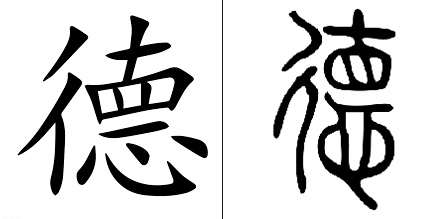Welcome to our June newsletter.
In an exceptional article, even by his own standards, Ananda Coomaraswamy explores the traditional answers given to the Upanishad question: “Do you know that Thread, by which, and that Inner Controller by whom this world and the other and all beings are strung together and controlled from within, so that they move like a puppet, performing their respective functions?”
To believe in one’s own or another’s “personality” or “individuality” is animism. In the traditional philosophy it is emphasized that “personalities” are inconstants, ever changing and never stopping to “be”; “we” are not entities, but processes… The first step on the way to a liberation from “the mother of illusions,” and so toward an “infinite happiness,” is to have realized by a demonstration that “this (body and mind) is not my Self,” that there is no such thing as a “personality” anywhere to be found in the world.
• In his article “A Genealogical Study of De”, Professor Huaiyu Wang explores the ancient Chinese texts and explains the original range of meanings of the crucial term de. In a discussion often close to the Hindu concept of dharma, this same Te of Tao Te Ching, often translated as virtue, is revealed as the very “pontifical” human ability to harmonize spiritual endowment with sacrificial offering.
First, de signifies the gift of being, the endowment of spiritual power sponsoring the myriad kinds of lives between sky and earth. Second, it designates the spiritual power that heaven and dead ancestors confer upon the sovereign in the form of “boon and benediction.” Third, it refers to the beneficence of the sovereign toward his subordinate noblemen and the common people.
Modern (left) and ancient forms of the character De.
• We are happy to announce the publication of our latest title, Imam Ali From Concise History to Timeless Mystery, by Reza Shah-Kazemi, and thus to bring to a larger audience new facets of the great Islamic paragon of forbearance and initiatic wisdom.
When we look at the life, the teachings and the holiness of Imam ‘Ali, we see not what we are, but what we can be: a true human being, made in the image of God. Contemplating the face of ‘Ali’s perfect sanctity reveals something of what is hidden in the depths of our own humanity.
Your attention is drawn to the forthcoming event “Medieval Mystics in Conversation: An Evening of Mystical Poetry and Chant”, organised by the Woolf Institute, Cambridge, on 30 June.




